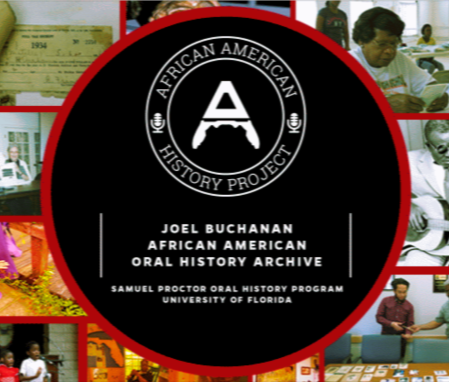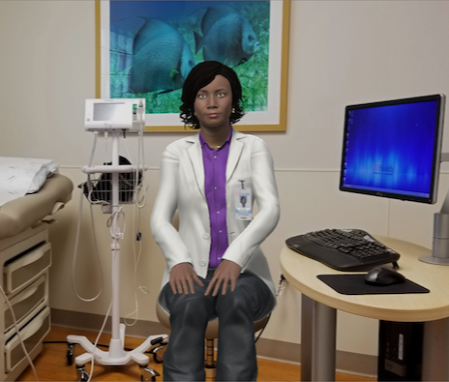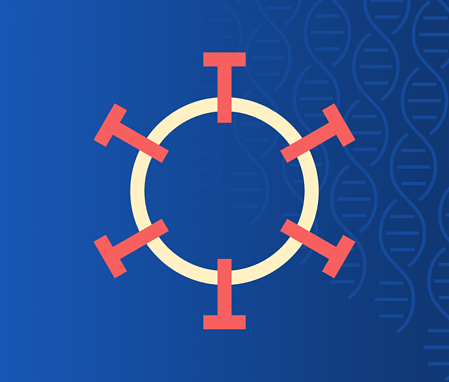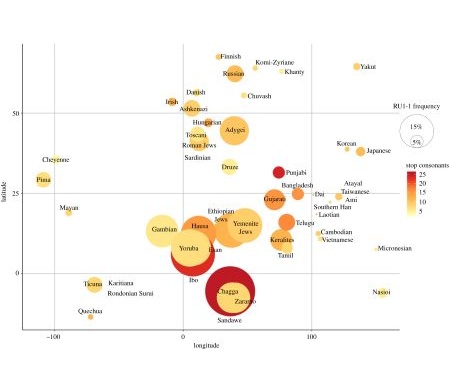Reanimating African American Oral Histories
Contained within the Joel Buchanan Archive of African American Oral History collection of interviews are the stories of African Americans who lived through the transatlantic slave trade, the Jim Crow era, the Civil Rights Movement, the wars of the 20th Century, and the first Black presidency. These accounts have enormous potential for educators and their students, historical scholars, and linguists investigating the use of African American Language. This 18-month project will produce two major deliverables: 1) the team will process an oral history collection consisting of 100 interviews within a newly advanced time-aligned interactive user interface with customizable features, and 2) a series of curriculum modules and learning guides/educational experiences directly connected to the use and exploration of these oral-histories.
Improve Precision Health with Sociolinguistic-enabled Virtual Humans
As part of a new transdisciplinary collaboration spanning across four colleges (CLAS, Engineer, Journalism and Communication and Medicine), Kevin Tang (Linguistics), and Janice L. Krieger (Journalism and Communication, Medicine) received the UF Clinical and Translational Science Institute’s Precision Health Initiative Pilot Project Award. This study will contribute to Joshua Martin’s PhD research on addressing linguistic bias against African American English in automatic speech recognition.
The project , a sociolinguistic-enabled web application to precision health intervention for African Americans, is to reduce colorectal cancer (CRC) screening inequities among African American patients by optimizing the delivery of a mobile screening intervention using virtual health assistants (VHAs) and to develop a voice activated version of the intervention.
COVID-19 team science
In collaboration with UF BEBR/CTSI Network Science Lab, and One Health research, Kevin Tang has been awarded a seed grant from the UF Informatics Institute’s COVID-19 Response Seed Funding initiative.
The project, “The emergence of COVID-19 team science: tracking topics, networks and expertise in global COVID-19 research”, will analyze a unique combination of big bibliographic data to track evolving topics, growing networks, and hidden expertise in global and local COVID-19 research. It will draw on theories and methods from computational social science, Natural Language Processing, and network science to examine the growth and diversification of topics and networks in global COVID-19 research, their temporal and geographic distribution, and the emergence of scientific consensus on specific COVID-19 topics.
Language and Genes
Languages evolve rapidly due to an interaction between sociocultural factors and underlying phonological processes that are influenced by genetic factors. In this project, we look to genes such as DCDC2 which has been strongly associated with core components of the phonological processing system in animal models and multiple independent studies of populations and languages. Our results suggest that subtle cognitive biases conferred by different alleles are amplified through cultural transmission that shape consonant use by populations over time.
Proceeding of Royal Society B (2020): http://dx.doi.org/10.1098/rspb.2019.2712
PNAS (2018): https://doi.org/10.1073/pnas.1710472115
Team: Dr. Kevin Tang (UF), Dr. Mellissa M. C. DeMille (Yale), Dr. Jeffrey R. Gruen (Yale), Dr. Jan Frijters (Brock) and student researchers: Robin Fintz (UF) and Ryan Aponte (UF)



